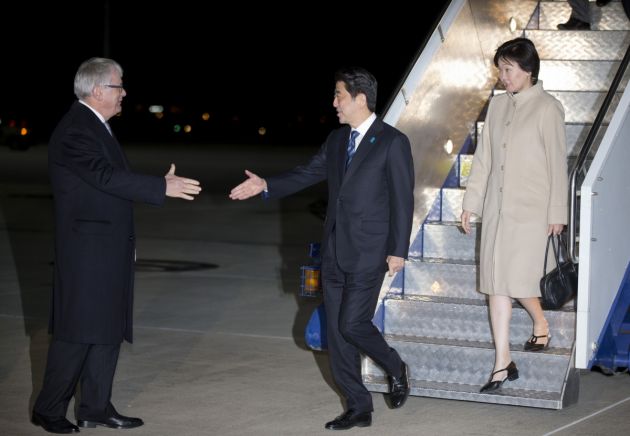Japanese bishops ask government to reassess action on pacifist constitution

Japanese bishops have asked their government to reconsider its decision to allow its Self-Defense Force to conduct military operations with other countries.
This is a policy shift that some observers say is necessary due to China's growing military clout.
In a statement addressed to Prime Minister Shinzo Abe on July 3, the Catholic Bishops Conference of Japan reminded the government of the principles of its Peace Constitution.
They said that the reinterpretation of the constitution is "unacceptable."
"We, the Catholic Church, are convinced that it is false to think that security can be ensured by military buildup and the use of force," said the bishops in their statement, carried by ucanews.
On July 1, Japan's cabinet announced a reinterpretation of the country's constitution that would enable the exercise of "collective self-defense" involving military cooperation with other nations.
"Abe's mission to create a more robust military has been welcomed by Australia and other countries in the region who share his concerns about China's swift, and opaque, military build-up" Britain's Guardian newspaper said on Sunday.
The bishops issued their statement after a monthly meeting. Seven bishops signed the document.
Church leaders in Japan called the initiative of Abe's government "constitutionally unacceptable," and said all moves to reinterpret Article 9, the pacifist section, as trampling on the constitution and "a denial of constitutionalism."
Article 9 of the Japanese Constitution reads: "Aspiring sincerely to an international peace based on justice and order, the Japanese people forever renounce war as a sovereign right of the nation and the threat or use of force as means of settling international disputes.
"To accomplish the aim of the preceding paragraph, land, sea, and air forces, as well as other war potential, will never be maintained. The right of belligerency of the State will not be recognized."
The government's move to reinterpret the constitution is seen by some as tarnishing the legacy of the country's founding law, that was a source of pride for Japan as the country rebuilt itself after World War II.
The bishops said the new initiative will only heighten anxiety in Asia, as China is asserting territorial claims in internationally recognized waters.
"The latest backtracking on the principles of the Peace Constitution obstructs the easing of tensions in East Asia so that dialogue and trust among nations will be beyond our reach," the bishops said.
They noted that peace "can be built by sincere reflection upon history and apology followed by forgiveness.
"We must not abandon the hope to avoid war and armed conflict through dialogue and negotiation," the bishops said.
Christians make up only 2 percent of Japan's 127 million people. Catholics are the biggest Christian tradition in the country.
